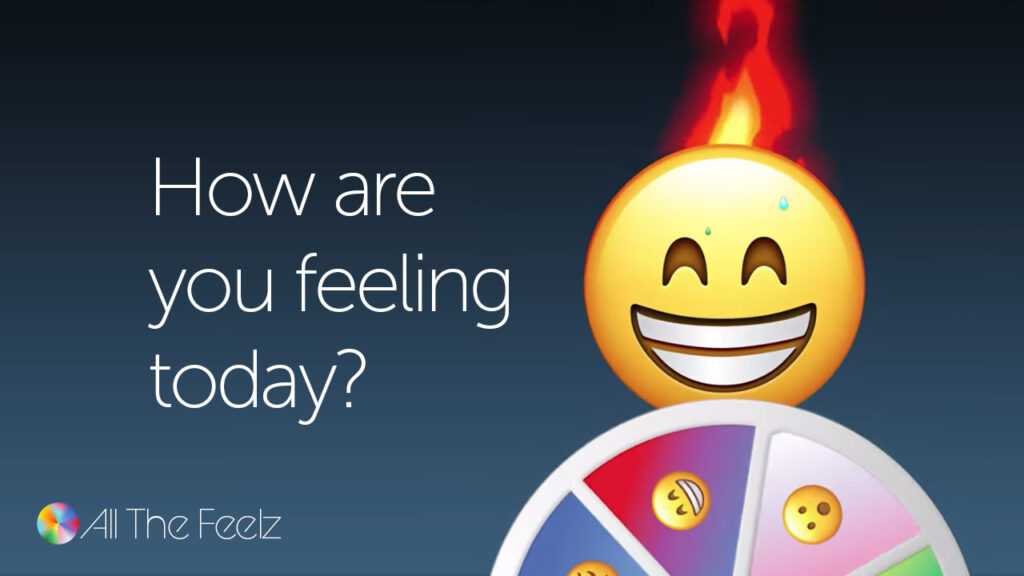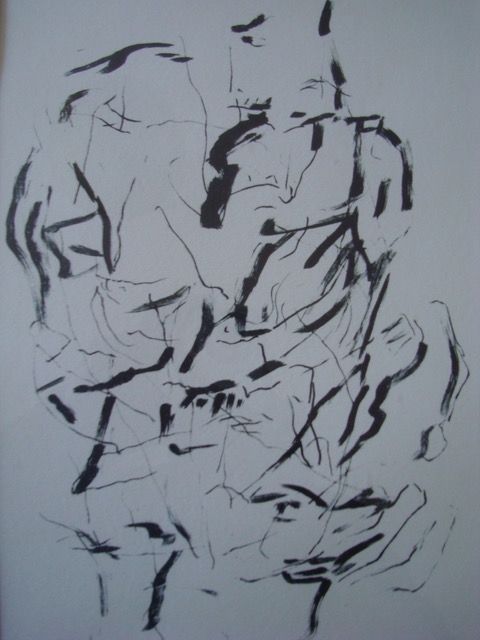
This isn’t really a blog. Or even an essay. More a series of disconnected thoughts arising out of belated readings on affect theory and its implications for Cultural Literacy Research. As a SIG coordinator and consultant to universities on research bidding, I continue to be preoccupied by the impact of ‘the affective turn’ on the social dynamics of definable, site-specific groups in society. Much recent academic and journalistic commentary has drawn attention to the significance of emotion in the formulation of public and private opinion. Amongst other things, it has emphasised the divisive impacts on western societies of populism and collective violence. It has highlighted the disregard of legally grounded democratic principle by autocratic leaders and the nefarious practices of international corporations in the political and commercial manipulation of citizens’ feelings. For many liberal geopolitical commentators, ‘post truth’ has marked the decline, if not the death-throes of liberal democracy.
This awareness has not, however, inhibited the growing influence of ‘affect theory’ within social science itself. In fact, it may well have promoted it. As Ernst van Alphen and Tomáš Jirsa put it in the eloquent introduction to their edited text How to do things with Affect:
“When I hear the word affect I reach for my Taser. An unfair reflex, I know, but affect seems to me a prime medium of ideology today— an implanted emotionality that is worse—because more effective—than false consciousness”
Foster 2012 [1]
The comment was voiced live ten years ago by the art historian Hal Foster in a recorded roundtable on Art and Architecture. Van Alphen and Jirsa for their part were using it as a rhetorical counter-argument to their own polemical objective, namely to devise a method which enables ‘affect’ to be evaluated in ‘operational’ rather than primarily conceptual terms. In their words:
“Rather than providing definitions of what affects are (not), we find it more useful to focus on what precisely affects do, how they operate within aesthetic forms and cultural practices”
Van Alphen and Jirsa 2019:1 [2]
Evidently they were fed up with philosophical debates about the nature of emotion, its relationship to knowledge and understanding and the recent preoccupation with affect as a culturally constructed process. Their formulation chimes well with the goal of the SIG ‘Cultural Literacy and Social Change’. As probably overstated on the CLE website, the so-called ‘Culture SIG’ focuses on the link between cultural theory, literacy in the widest sense and tangible social outcomes. Whether you like it or not, ‘affect’ in its various iterations then presents itself alongside economics, politics and history as a core factor which cannot be overlooked: not simply because it has become modish in academic circles to turn to Deleuze and Guattari and others as an explanation of what has happened to Western Culture since the 1970s[3], but because the impact of the ‘affective turn’ has become such a palpably real aspect of mediated social behaviour. Its consequences are felt in different ways in different locations at different levels of society, but in almost all cases as an accessible response to widespread insecurity and uncertainty about the future.

In the face of overwhelming geo-political complexity and the apparent failure of the neo-liberal system to resolve global economic issues, one reaction on the part of social analysts has been to focus on the local rather than the global, to review the relationship between everyday life in community and the types of cultural activity likely to promote positive change at the micro-level through closely targeted research. Money is short. Practice-led research is under scrutiny. It remains the poor relation of fundamental, scientific investigation and the methodological principles which go with it. As is now widely acknowledged, the response from policy-makers is to encourage ‘co-participation’, viz. the active involvement of ‘ordinary people’ in socially grounded ‘research projects’, projects which raise the profile of their medium-term contribution to the ‘quality of life’ within and between the social groups of which they are part. Such a focus immediately raises questions about the relationship between the empirical observation of social practice and the theory which underpins it. If practice is to be ‘informed’ by theory, on which theoretical school should it draw? Or, to put the question differently, how should different theoretical approaches be most effectively combined in order to offer the most cogent blueprints for cultural action.
A fundamental axiom of ‘Affect Theory’ is that the attempt to drive an epistemological wedge between ‘emotion’ and ‘reason’ is not tenable in practice. As the pre-romantic, agnostic writers of the European Enlightenment amply demonstrated, cognition itself depends on sentient processes which link mind and body. By extension, relations between individuals and groups are themselves ‘embodied’ through the internalisation of shared experience. The recent extreme version of the latter principle underpinning affect theory holds that close intra-group associations are ‘pre-lingual’. Philosophically as well as physically, feeling precedes thought.
Logically, for non-believers in Freudian, Marxist or Behaviourist explanations, or indeed informed sceptics in general, the motivational essence which fuels the mechanisms of inter-personal dynamics escapes objective identification. It has to be felt before being ‘captured’ and thence communicated to others in symbolic terms, eventually to become collectively internalised as ethical, religious or ideological principles.
That symbolic ‘capture’ may be abstract and extremely sophisticated – witness the digital algorithms which structure communication within institutions, minutely categorise our behaviour and manipulate our collective emotional responses to experience. In everyday life on the other hand, the affective dimension is best manifested through language or, sociologically speaking, situated discourse whose ‘frames’ or ‘activity types’ operate as inter-modal cultural lenses combining music, physical performance, spatial architecture and material artefacts of all kinds. Following Deleuze and Guattari’s use of the term ‘agencement’, Slaby et al. refer to their conceptualisation of local relationality as ‘affective arrangement’:
“Affective arrangements are heterogeneous ensembles of diverse materials forming a local layout that operates as a dynamic formation, comprising persons, things, artifacts, spaces, discourses, behaviours, and expressions in a characteristic mode of composition and dynamic relatedness. Our approach facilitates microanalyses of affective relationality as it furthers both an understanding of the entities that coalesce locally to engender relational affect, and also the overall “feel,” affective tonality or atmosphere that prevails in such a locale. The proposed concept is an analytical tool—provisional and open-textured yet sufficiently determinate—to help researchers get a grip on complex inter- or intra-actional settings in which affect looms large.”
Slaby, Mühlhoff and Wüschner 2017:2[3]
However, from Rousseau through Vygotsky and Piaget to Froebel, Schutz and beyond, it is clear that ‘affect’ is much more than a state of mind. While in strictly clinical or philosophical terms, it may be said to precede action or even rational thought, once engaged, it becomes ‘activity-led’. Ideally, affect and activity enter into a virtuous circle which by definition extends beyond the individual, one in which group interaction is necessarily involved. It follows that the first challenge confronting the would-be ‘ethnographer of affect’ is to identify the salient everyday activities which constitute the ‘cultural glue’ of communities and closely to examine the processes by which these are symbolised and collectively represented. To that extent, the development of cultural literacy on the part of citizens and researchers alike becomes an exercise in social geography, designed to reveal the affective chemistry of belonging. The attempt to define this chemistry in national terms very quickly leads to stereotypes which for far too long have afflicted the study of intercultural communication. One striking aspect of pluralistic social fragmentation is that the insignia of ‘affective salience’ filtered through language and behaviour are increasingly context-specific and local in character. They need to be understood accordingly, on their own terms and in relation to each other by using the same heuristic instruments across the local board.Most of the above is blindingly obvious in principle. The problem comes when seeking to apply it in practice, most especially in finding ways to identify and evaluate the affective determinants of social connectedness in terms which are meaningfully communicable and theoretically coherent. All too frequently, the impressionistic, meta-discursive store of hyperbolic adjectives and fanciful metaphor quickly runs dry, to the point where in extreme cases the self-referential, reflexive style of affective analysis runs the danger of defeating its own object by simply replicating itself. Which is why of course, data and creative artefacts relevant to capturing the affective forces which bind and separate groups in society should emanate authentically from the voices of real people interacting in real-life situations. Such a move inevitably changes the role of the soi-disant ‘researcher’ who then becomes a creative yet critically responsible facilitator or mediator who gives meaningful voice to others rather than a scientist seeking empirically to demonstrate an anticipated truth. Thereby, researchers are agents in a catalytic process which enables cultural literacy to define itself.
The epistemological challenge which this discursive double-bind represents for researchers is addressed head on by the exploratory work of the Collaborative Research Centre (SFB 1171) Affective Societies at the Freie Universität Berlin. In fact, the main object of this blog is to draw colleagues’ attention to the clarity of exposition brought to the Centre’s on-line publications. Not only do the group’s outputs retrace the historical development of the relationship between thought and emotion derived from the work of Spinoza, Nietsche, Bergson and latterly Deleuze and Guattari, Nancy Fraser, Judith Butler, Sarah Ahmed, Brian Massumi and others; they also consider in a series of essays the impact of their legacy on current political culture.
The Berlin Group’s collective goal is to illustrate what is meant by the phrase ‘affective relationality’ when it is translated into real-life contemporary examples. It addresses such questions as the extent to which it is possible to reconcile antagonisms within and between specific social groups. As the quotation above illustrates, it highlights the need to identify material environments which foster ‘agencement’, that is sites where dynamic, embodied expressions of feeling can lead to new and sustainable affective formations: not of course for their own sake but as part of a network of activities involving different agents whose diverse outlooks and interests within a bounded local environment are complementary to each other in economic as well as in civic terms. Profuse examples of this kind exist in highly diverse contexts, despite the setbacks of the last two years. They should be identified, critically mediated and their ingredients more widely disseminated by independent research associations such as CLE so that their social and cultural benefits can be shared. I hope that the different case studies coordinated by members of this Special Interest Group will go some way towards meeting that objective.
Robert Crawshaw, 6th April 2022
References
See below a small sample of recent papers on ‘Affect’ published by members of The Collaborative Research Centre (SFB) 1171 ‘Affective Societies’ at the Freie Universität Berlin, funded by the German Research Foundation/Deutsche Forschungs Gemeinschaft (DFG). The papers can be accessed directly by clicking on the titles.
| The Politics of Affective Societies. An Interdisciplinary Essay – Hauke Lehmann, Jonas Bens, Gabriel Scheidecker, Gerhard Thonhauser, M. Ragıp Zık, Aletta Diefenbach, Dina Wahba. |
| Introduction: Affective Societies – Key Concepts – Jan Slaby. |
| Relational Affect: Perspectives from Philosophy and Cultural Studies – Jan Slaby. |
| Emotion, emotion concept – Christian von Scheve, Jan Slaby. |
[2] https://doi.org/10.1163/9789004397712_002
[3] Gilles DELEUZE and Félix GUATTARI L’Anti-Œdipe: Capitalisme et Schizophrénie (Paris: Les Editions de Minuit, 1972/1995)
[4] Jan SLABY, Rainer MÜHLHOFF and Philipp WÜSCHNER ‘Affective Arrangements’ in Emotion Review, 2017 p.2

